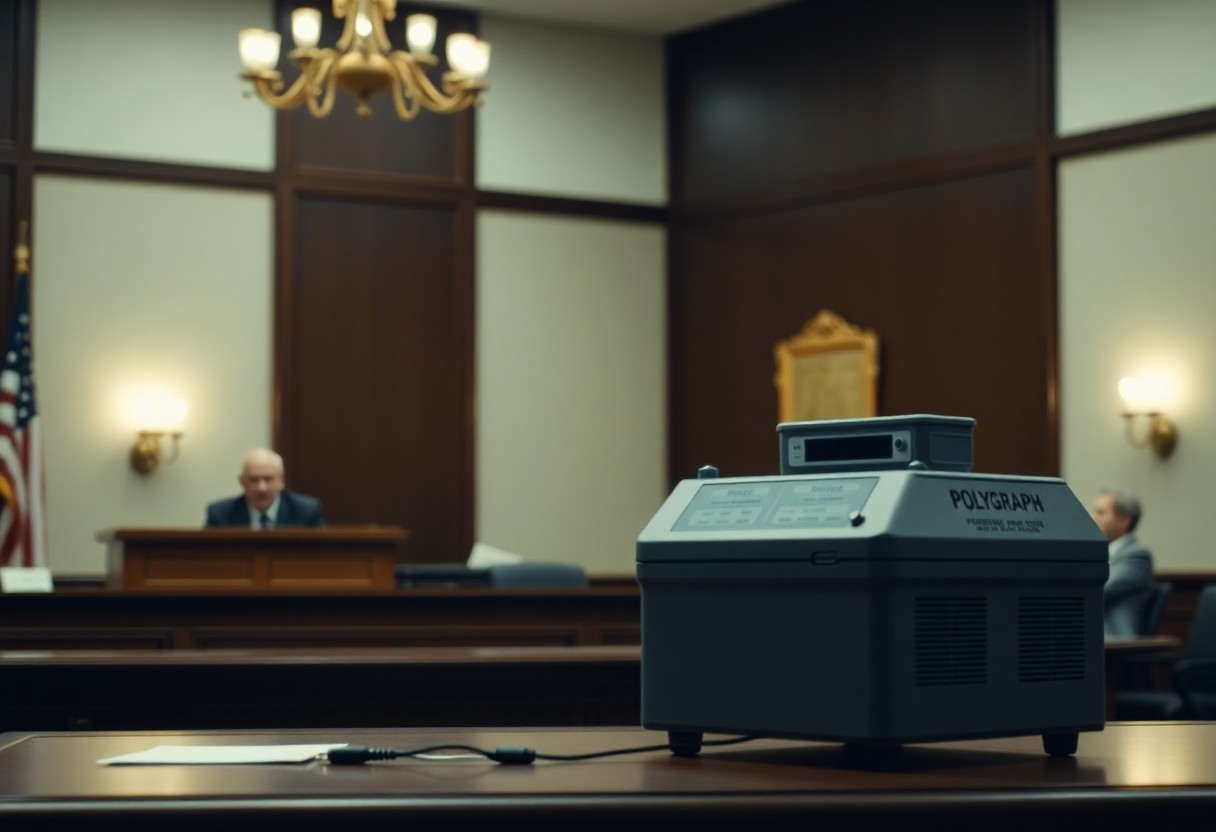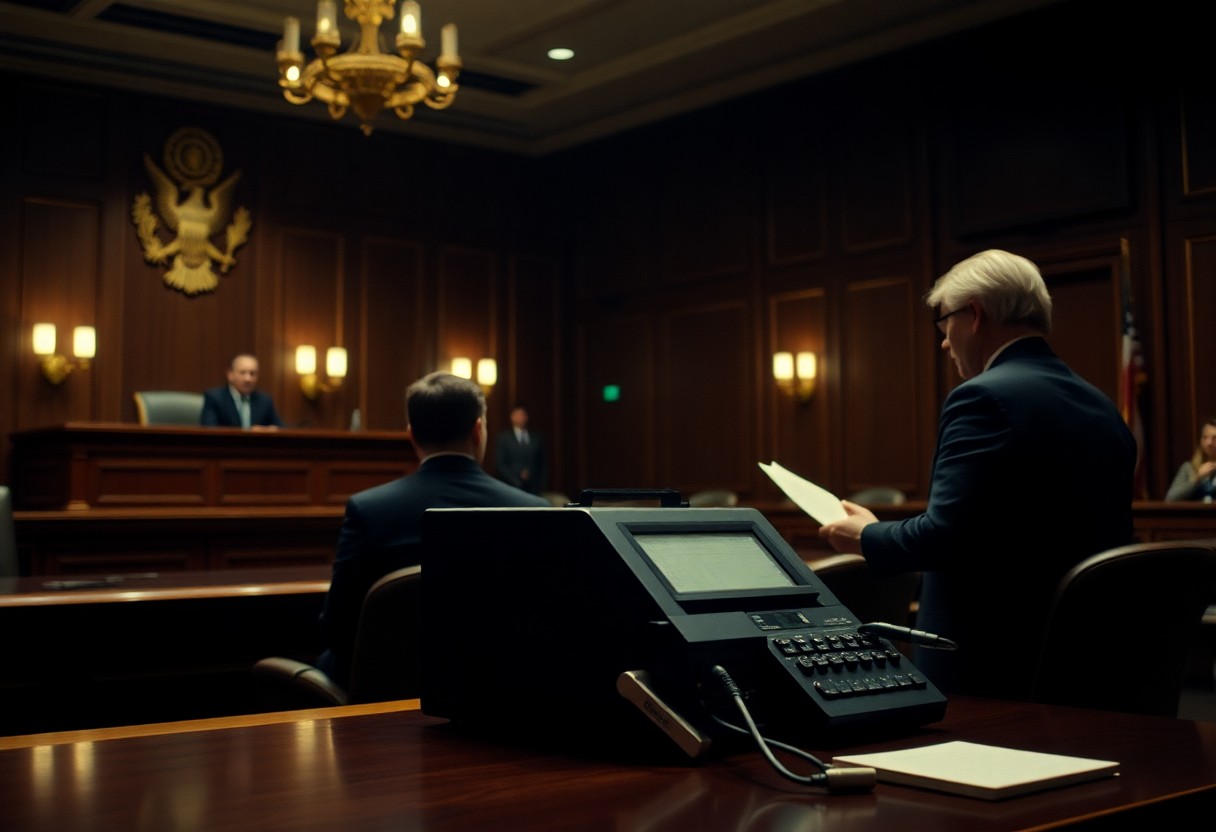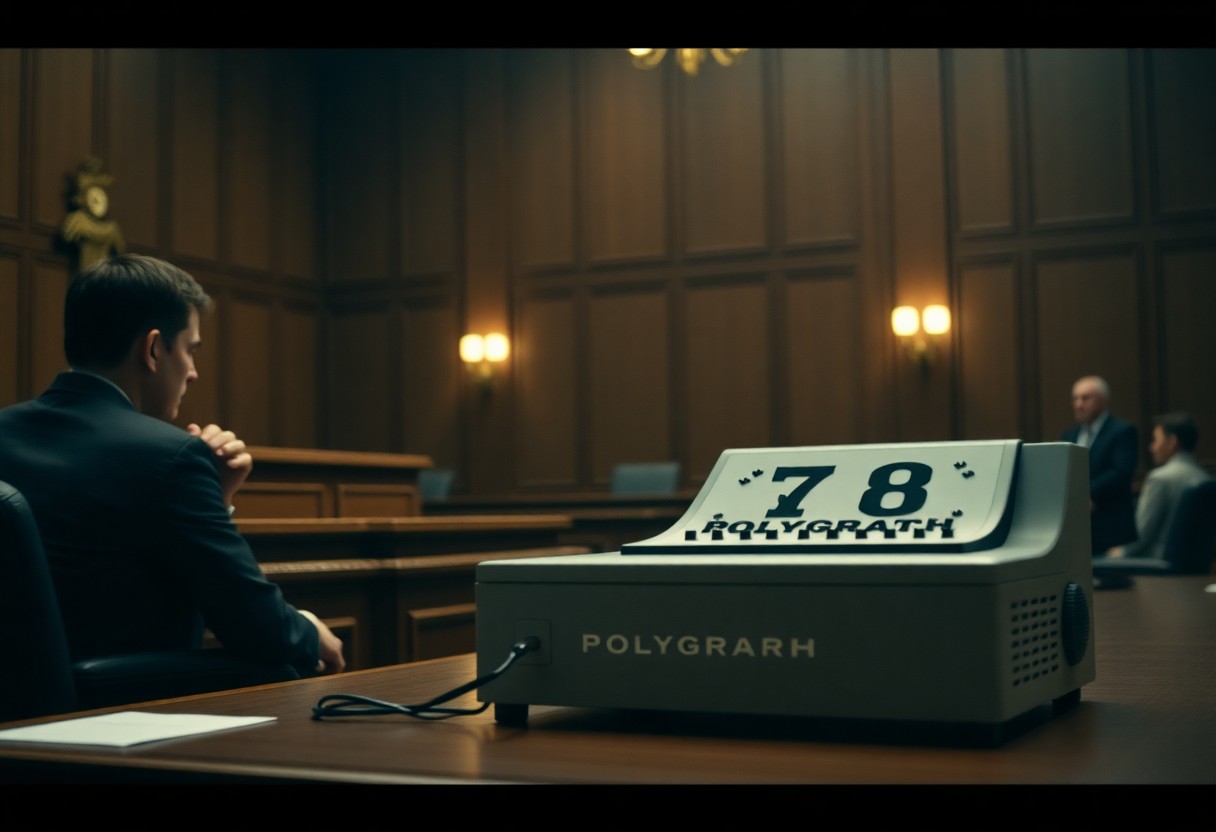
You may find yourself questioning the reliability and admissibility of polygraph tests in legal proceedings. Understanding the legal implications of using polygraphs can have significant consequences for your case, whether you are a defendant, plaintiff, or legal professional. This blog post will explore the current legal landscape surrounding polygraph use in court, including their potential benefits and limitations, as well as the varying acceptance across jurisdictions. By delving into this topic, you will be better equipped to navigate the complexities of polygraph evidence in the courtroom.
Understanding Polygraphs
The polygraph, commonly known as the lie detector, is a device designed to measure physiological responses such as heart rate, blood pressure, and respiration patterns. This technology is often employed in various contexts, including criminal investigations, employment screenings, and legal proceedings, to assess the truthfulness of individuals’ statements. Understanding how polygraphs function and their legal implications is imperative for anyone navigating cases involving these instruments.
Definition and Purpose
Above all, a polygraph is intended to evaluate the physiological indicators of stress and deception. When someone is questioned about a sensitive or incriminating matter, their body may react in specific ways that a polygraph can measure. This purpose spans both investigative scenarios—like criminal cases—and personal contexts, such as pre-employment assessments, helping you gauge integrity or uncover hidden truths.
Mechanism of Action
After you connect to a polygraph, sensors monitor your bodily functions during questioning. The device tracks physiological changes, focusing particularly on heart rate, blood pressure, and respiratory rate, as you answer both relevant and control questions. By comparing responses, the polygraph aims to identify inconsistencies that may indicate deceit.
Even though polygraph testing appears straightforward, the interpretation of results can be complex. The physiological reactions measured by the polygraph, such as increased heart rate or altered breathing patterns, may not exclusively indicate deception. They can also stem from anxiety, fear, or stress unrelated to the questions being asked. Thus, professional examiners analyze your responses alongside other contextual factors to ascertain whether your physiological state aligns with truthful or deceptive behavior. This nuanced understanding highlights the importance of expert interpretation in legal settings.
Legal Status of Polygraphs
If you are considering the use of polygraphs in legal proceedings, it’s important to understand their legal status. Polygraphs, commonly known as lie detectors, are not universally accepted as reliable instruments in courts. Their acceptance can vary based on jurisdiction, case type, and specific circumstances surrounding each case.
Admissibility in Court
Along with their varying status, the admissibility of polygraph results in court can be contentious. Some jurisdictions allow for limited use, while others completely prohibit the introduction of such evidence, deeming it scientifically unreliable.
Jurisdictional Variations
On examining jurisdictional variations, you’ll find that laws governing polygraph use significantly differ from one area to another. Some states may have statutes explicitly allowing or disallowing polygraph evidence, while others may not have clear regulations at all.
And as a result, it is necessary to investigate the specific rules applicable in your jurisdiction. Factors influencing these rules may include the nature of the case, the qualifications of the examiner, and whether the parties involved have consented to the testing. Understanding these variables can help guide your decisions regarding the potential use of polygraphs in your legal strategy.

The Role of Polygraphs in Criminal Cases
It is crucial to understand that polygraphs can play a significant role in criminal cases, influencing both investigations and judicial proceedings. Their use may vary across jurisdictions, and the Legality and Admissibility of Polygraph Tests in Courtrooms can significantly affect your legal defense strategy. While not always accepted as definitive evidence, polygraphs serve as valuable resources in determining credibility and aiding in case resolutions.
Investigative Tool
Behind the scenes, polygraphs often serve as an investigative tool for law enforcement, helping to identify potential suspects or corroborating alibis. They can provide insights into the truthfulness of statements made by witnesses or involved parties, assisting investigators in narrowing down their inquiries and focusing on pertinent leads.
Reliability and Controversies
Above their role as an investigative tool, the reliability of polygraph results remains a point of contention. Critics argue that factors such as anxiety and individual differences can lead to false positives or negatives. The debate over their effectiveness has led some jurisdictions to reject them as evidence in court, presenting challenges for your legal case.
The discussion surrounding polygraph reliability is ongoing, with various studies presenting mixed results. Some proponents assert that, when conducted by skilled professionals, polygraphs can yield accurate assessments of truthfulness. However, skeptics emphasize the potential for misleading outcomes due to the physiological responses being measured. As you engage with this topic, it’s crucial to understand the nuances and consult with legal professionals to navigate how polygraphs may impact your specific case.
The Use of Polygraphs in Civil Litigation
Your understanding of polygraphs in civil litigation can significantly impact case outcomes. While polygraph results are not typically admissible as definitive evidence, they may be influential in negotiations and settlements. In some instances, the mere mention of a lie detector test can sway parties to reconsider their positions or settle out of court, as the belief in their accuracy can add pressure to reach an agreement.
Employment Screening
Polygraphs are often used in employment screening to assess the honesty and integrity of prospective employees. Employers may rely on these tests to verify claims made during interviews or resumes, particularly for positions that involve sensitive information or significant trust. However, it’s necessary to navigate the legal landscape carefully, as the use of polygraphs in hiring practices is restricted by laws such as the Employee Polygraph Protection Act.
Personal Injury Cases
Behind the scenes, polygraphs may play a role in personal injury cases, particularly when there’s a dispute over the validity of claims. While not admissible as evidence in many jurisdictions, parties may utilize polygraph tests during negotiations to assess the credibility of claims made by injury victims or defendants.
Due to the contentious nature of personal injury claims, parties may resort to polygraphs as a tool for gauging honesty. Although these results cannot be submitted as formal evidence, they can influence the negotiation process and settlement discussions. If a party passes a polygraph showing truthfulness, it may strengthen their position, making the opposing side more likely to settle. Conversely, failing a test might prompt a reevaluation of claims, potentially leading to reduced offers or further investigations.
Ethical Considerations
Many factors influence the ethical landscape surrounding polygraph use in court. These include potential impacts on justice, the reliability of results, and the implications for individuals involved in legal proceedings. As you explore the use of polygraphs, it’s necessary to weigh these ethical considerations to understand how they affect your case and the broader legal system.
Privacy Concerns
Concerns regarding privacy arise when polygraphs are utilized in court. The nature of polygraph examinations often involves intrusive questioning that can disclose sensitive information about an individual’s personal life. You must consider how your privacy may be compromised during this process and the potential repercussions it may have on your life.
Informed Consent
Informed consent is vital when discussing the use of polygraphs in legal settings. You should have a clear understanding of what the examination involves, the potential outcomes, and any risks associated with the process before agreeing to participate.
And having informed consent not only respects your autonomy but also ensures that you are willingly participating in the examination process. By providing clear information about the procedure, the implications of the results, and the limitations of polygraph accuracy, you empower yourself to make an educated decision for your situation. This fosters a level of transparency that is necessary for ethical practice in any legal context.

Future Trends and Considerations
Once again, the landscape of polygraph usage in court is evolving. As more jurisdictions examine the effectiveness and reliability of these machines, you may find that the legal acceptance of polygraphs shifts significantly. You should keep an eye out for trends indicating how courts are adapting to scientific advancements and public perception, as these factors may influence your understanding of legal proceedings involving polygraphs in the future.
Technological Advances
To better understand the future implications of polygraphs in court, consider the rapid technological advances in this field. You will likely encounter new methods that enhance the accuracy and reliability of polygraph testing. These innovations may affect how courts perceive and utilize such evidence, which can directly impact your engagement with the legal system.
Legal Reforms
After analyzing current trends, it becomes apparent that legal reforms are increasingly influencing the admissibility of polygraphs. As you follow the discussions surrounding these reforms, you may see changes in legislation that either support or challenge the use of polygraphs in court settings. These shifts can directly affect how you approach cases involving this controversial technology.
Another aspect to consider is that ongoing legal reforms may prioritize scientific validation of polygraphs, leading to stricter guidelines for their use. As you stay informed about these developments, consider how new laws might require polygraph results to be backed by more objective scientific standards. This could reshape the way polygraph evidence is presented and interpreted in legal contexts, further necessitating your awareness of evolving standards in the justice system.
Final Words
Drawing together the legal implications of using polygraphs in court, it’s important for you to understand that while polygraphs can offer insights, their results are often viewed skeptically by courts. You should consider that the admissibility of polygraph results largely varies by jurisdiction and often hinges on the reliability of the testing process. Furthermore, you need to be aware of the potential for misuse and the impact it could have on your case. Therefore, consulting legal professionals who are knowledgeable about these complexities will be crucial for navigating potential challenges in court.
